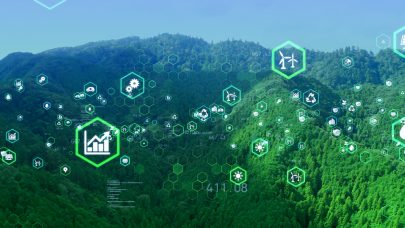
HPC User Forum: Sustainability at TACC Points to Software
October 3, 2023
Recently, Dan Stanzione, Executive Director, TACC and Associate Vice President for Research, UT-Austin, gave a presentation on HPC sustainability at the Fall 20 Read more…

At ISC, Sustainable Computing Leaders Discuss HPC’s Energy Crossroads
May 30, 2023
In the wake of SC22 last year, HPCwire wrote that “the conference’s eyes had shifted to carbon emissions and energy intensity” rather than the historical Read more…

Decarbonization Initiative at NETL Gets Computing Boost
February 7, 2023
A major initiative by U.S. president Joe Biden called EarthShots to decarbonize the power grid by 2035 and the U.S. economy by 2050 is getting a major boost thr Read more…

Intel Touts Sustainability Benefits of Sapphire Rapids Processors
January 11, 2023
The slowing of Moore’s law, rising energy costs and increasing climate regulations have led to ever-larger and ever-more-consequential energy footprints for d Read more…

With a Carbon Footprint Like HPC’s, It Matters When and Where You Step
December 9, 2021
From European HPC experts pondering “can fast be green?” to new milestones on the Green500 list, sustainability certainly had a moment at the hybrid SC21 conference. And it’s no wonder: the exascale era is here, and power consumption for HPC is skyrocketing even as efficiency is driven to its extremes. At SC21, another session – “HPC’s Growing Sustainability Challenges and Emerging Approaches” – tackled the topic... Read more…

At SC21, Experts Ask: Can Fast HPC Be Green?
November 30, 2021
HPC is entering a new era: exascale is (somewhat) officially here, but Moore’s law is ending. Power consumption and other sustainability concerns loom over the enormous systems and chips of this new epoch, for both cost and compliance reasons. Reconciling the need to continue the supercomputer scale-up while reducing HPC’s environmental impacts... Read more…

What’s New in HPC Research: Image Classification, Crowd Computing, Genome Informatics & More
May 15, 2019
In this bimonthly feature, HPCwire highlights newly published research in the high-performance computing community and related domains. From parallel programm Read more…

A Conversation with SC09 General Chair Wilf Pinfold
November 6, 2009
SC09 General Chair Wilf Pinfold shares his thoughts on organizing the world's largest Supercomputing event, examines this year's big conference themes and gives his take on the state of the industry and how that reflects on the conference. Read more…

- Click Here for More Headlines

Whitepaper
Transforming Industrial and Automotive Manufacturing
In this era, expansion in digital infrastructure capacity is inevitable. Parallel to this, climate change consciousness is also rising, making sustainability a mandatory part of the organization’s functioning. As computing workloads such as AI and HPC continue to surge, so does the energy consumption, posing environmental woes. IT departments within organizations have a crucial role in combating this challenge. They can significantly drive sustainable practices by influencing newer technologies and process adoption that aid in mitigating the effects of climate change.
While buying more sustainable IT solutions is an option, partnering with IT solutions providers, such and Lenovo and Intel, who are committed to sustainability and aiding customers in executing sustainability strategies is likely to be more impactful.
Learn how Lenovo and Intel, through their partnership, are strongly positioned to address this need with their innovations driving energy efficiency and environmental stewardship.
Download Now
Sponsored by Lenovo
Whitepaper
How Direct Liquid Cooling Improves Data Center Energy Efficiency
Data centers are experiencing increasing power consumption, space constraints and cooling demands due to the unprecedented computing power required by today’s chips and servers. HVAC cooling systems consume approximately 40% of a data center’s electricity. These systems traditionally use air conditioning, air handling and fans to cool the data center facility and IT equipment, ultimately resulting in high energy consumption and high carbon emissions. Data centers are moving to direct liquid cooled (DLC) systems to improve cooling efficiency thus lowering their PUE, operating expenses (OPEX) and carbon footprint.
This paper describes how CoolIT Systems (CoolIT) meets the need for improved energy efficiency in data centers and includes case studies that show how CoolIT’s DLC solutions improve energy efficiency, increase rack density, lower OPEX, and enable sustainability programs. CoolIT is the global market and innovation leader in scalable DLC solutions for the world’s most demanding computing environments. CoolIT’s end-to-end solutions meet the rising demand in cooling and the rising demand for energy efficiency.
Download Now
Sponsored by CoolIT
Advanced Scale Career Development & Workforce Enhancement Center
Featured Advanced Scale Jobs:
HPCwire Resource Library
HPCwire Product Showcase
© 2024 HPCwire. All Rights Reserved. A Tabor Communications Publication
HPCwire is a registered trademark of Tabor Communications, Inc. Use of this site is governed by our Terms of Use and Privacy Policy.
Reproduction in whole or in part in any form or medium without express written permission of Tabor Communications, Inc. is prohibited.
























